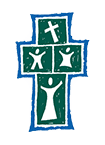Commentary
Physical abuse is any non-accidental physical injury to a child caused by an adult that results in or threatens serious injury. Often adults who physically abuse children do not intend to seriously injure the children but get carried away by anger and frustration in their own lives.
Neglect is the failure of a parent or guardian to provide a child with adequate food, clothing, shelter, medical care, education or supervision. Neglect is a chronic problem often resulting, not from poverty, but from lack of knowledge as to the proper care required by children.
Sexual abuse is any physical contact with a child by an adult or older child in a position of power over the child for the sexual gratification of the adult or older child. Other terms for sexual abuse include child molestation, incest (if the abuser is a member of the child’s family), or child pornography. Usually, child sexual abuse is not violent, and the child knows the abuser.
Emotional abuse is an important factor in all forms of child abuse. To be hurt so much by someone who should care and protect is very damaging to the emotional development of a child. Adults who do not physically harm a child may cause emotional harm by using words that threaten, harshly criticize, ridicule or harass.
Signs of Physical Abuse
- Child has unexplained burns, bruises, broken bones, black eyes
- Child has fading bruises after an absence from class or regularly scheduled activity
- Child shrinks from the touch of adults or appears unusually fearful.
- Child reports injury by an adult
Signs of Neglect
- Child is frequently absent
- Child begs/steals food or money
- Child lacks medical or dental care, glasses, and immunizations
- Child is consistently dirty, has severe body odor
- Child lacks sufficient food
- Child abuses alcohol or drugs
- Child states that no one provides care
Signs of Sexual Abuse
- Child exhibits change in behavior such as loss of appetite, nightmares, inability to sleep or withdrawal from usual activities and peer relationships
- Child returns to bedwetting or thumb sucking.
- Child has genital pain, itching, swelling or bleeding.
- Child indicates fear of a person or an intense dislike of being left somewhere or with a particular person.
- Child shows unusual interest in or knowledge of sexual matters, expressing affection in ways inappropriate for a child of his or her age.
Signs of Emotional Abuse
- Child shows extremes in behavior.
- Child’s mannerisms are inappropriately adult or infantile.
- Child is delayed in physical or emotional development.
- Child reports lack of attachment to parents.
- Child is exhibiting extremes of behavior; is overly anxious to please or to assume blame; is extremely passive or aggressive, demanding or undemanding

